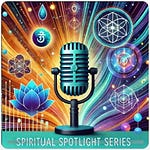“We accept the love we think we deserve.”
— Stephen Chbosky, film director and author
I met Stefan Deutsch online and sent him my Operating Manual for Enlightenment. He sent me his Love Decoded: Getting the Love You Deserve. Here are his “Nine Laws for Fulfilling Relationships,” taken from the introduction, along with my comments. His approach reminds me of cognitive behavioral therapy, which says you reap what you say.
Approaching love this way is like crossing a swamp by jumping from stone to stone. This may keep you out of the muck, but it does not lead to higher ground. There is, truly, a heart space for higher love, and you cannot explain your way there.
Here are his nine laws with my comments after each.
1. Love that has to be earned isn’t love.
All love is conditional on supporting a positive relationship. To love a destructive person can only be healthy if there is some part of that person who is not destructive. If you love a person who is entirely destructive, then who are you loving?
Love that is unreciprocated can be an obsession. Love that does not involve a relationship does not need to be earned, but it’s rarely love in an interpersonal sense. Who is loved in heartbreak?
Love that persists beyond death is love of a different kind. You can draw on it and reapply it, but it is more of a pattern than a response.
Love that persists in abusive relationships is a combination of needy and pathological. It can be true and committed, but it is not healthy.
The more pressing question is whether love that is offered but not reciprocated is real love? There are cases where we can say it is, such as within families, but not always.
2. Become aware of your own and others’ unloving, conditional behaviors as well as loving, unconditional behaviors.
I find this confusing and unclear. I like things that are confusing when they foster greater insight, but simply considering opposites is not productive. It can be valuable but is easily overwhelming. There should be a point or goal, such as resolution or integration. Love is felt, not thought. It is a fantasy that exists in its own space.
Awareness is a necessary starting point, but there must be a path forward from this. Contradictions don’t resolve themselves. They exist for a reason, and some of those reasons will take you into the unfamiliar. The heart space can take you beyond yourself and into your genetic heritage, or the future of society. These contradictions are important, but you will not think your way toward their common resolution.
3. Never reject others’ loving energy. It hurts them.
This is a nice idea but a useless form of guidance. Those who will reject another will always find a justification for it. Even if that is nothing more than being uninterested.
There is no social paradigm that tells us to accept others. I cannot think of anyone who would place themselves or their friendships at risk in order to enforce this maxim. I entirely agree with the statement, but it provides no guidance to those who don’t understand it. More than that, it’s childish finger wagging.
I would rather say, “Be careful when you reject another’s loving energy. It hurts them and it will hurt you.” That is the point: if you hurt others, then you do not understand. You are insensitive to the meaningful role that you are playing in another person’s life. The opportunity to make a deeply felt, authentic connection is the root of meaningful existence.
If you are dismissive or disrespectful, the chances are good that you will lose this opportunity. If you ever become wise and can remember the mistakes you’ve made, you’ll regret them.
4. Never allow others to behave unlovingly without consequence. It hurts you. Ask them to love you unconditionally.
This is a pasta and lettuce sandwich on crackers. Though they’re all true, these three things have nothing to do with each other.
The first problem is that this statement is circular: you hurt because you allow others to behave unlovingly, and they are behaving unlovingly because you hurt. Saying one shouldn’t do this is like telling someone who’s hurting themselves to stop it. That’s a classic therapy joke: “Just stop it!” The admonition is ridiculous.
The second problem is the suggestion to ask for unconditional love. If you knew what unconditional love was, then you would not ask for it. It cannot be asked for. You cannot make conditional love unconditional. Some might claim it can be done alchemically, but alchemy was a bust.
The difference between conditional and unconditional love is fundamental. One is based on personal need, while the other is based on collective growth. I also think unconditional love is an oxymoron. It really means love based on a collective good.
Truly unconditional love is demented. It helps no one. This even applies to parents of children: children need guidance, not unconditional acceptance. Parents and children should recognize their enduring dependence and mutual reliance, but if acceptance means agreement it is not helpful.
To love without conditions is a chemically induced state. It’s meaningless. Some say they love Jesus unconditionally. What could this mean?
If you’d like to explore love in your life, schedule a short, free conversation:
5. Do not assume that there is any intentionality behind any act that hurts, disappoints, or angers you. Resist the temptation to blame others or assume their actions are designed to hurt you.
Listen to this episode with a 7-day free trial
Subscribe to Stream of Subconsciousness to listen to this post and get 7 days of free access to the full post archives.














